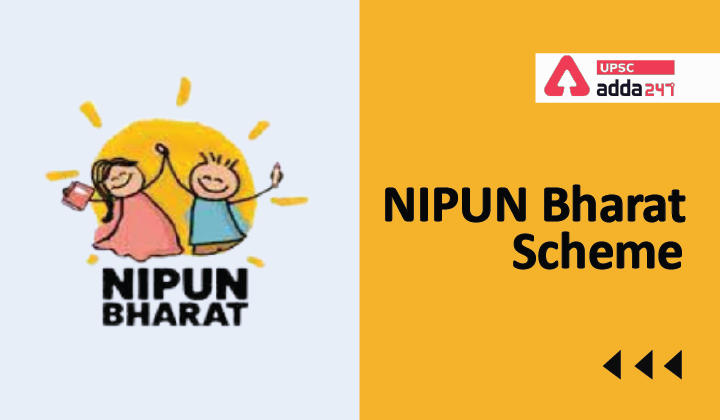Table of Contents
NIPUN Bharat Scheme- Relevance for UPSC Exam
- GS Paper 2: Governance, Administration and Challenges- Issues relating to development and management of Social Sector/Services relating to Education.
NIPUN Bharat Scheme- Context
- Recently, the Union Minister of Education in a written reply in the Lok Sabha laid down various key details about NIPUN Bharat Scheme.
- NIPUN Full form: National Initiative for Proficiency in Reading with Understanding and Numeracy (NIPUN Bharat).
NIPUN Bharat Scheme- Key points
- About: NIPUN Bharat Scheme was launched by the government with an aim to achieve universal foundational literacy and numeracy in primary classes.
- NIPUN Bharat Scheme was launched by the Department of School Education and Literacy under the aegis of Centrally Sponsored Scheme of Samagra Shiksha.
- Implementing Ministry: The Department of School Education and Literacy, Ministry of Education is responsible for implementing NIPUN Bharat scheme.
NIPUN Bharat Scheme- Key Guidelines
- The NIPUN Bharat Mission Guidelines lay down priorities and actionable agendas for States and UTs to achieve the goal of proficiency in foundational literacy and numeracy for every child by grade 3.
- NIPUN Bharat Mission guidelines also include-
- The codification of development goals and learning outcomes for age 3 to 9 years and
- Lakshya or Targets for Foundational Literacy and Numeracy starting from Balvatikato Grade III.
NIPUN Bharat Scheme- Assessment Domain
As per the NIPUN Bharat implementation guidelines, assessment during the foundational learning can be broadly categorized into two major areas, namely:
- School-Based Assessment (SBA) through qualitative observation based on the performance of the child in a multitude of experiences and activities.
- Various tools and techniques like anecdotal records, checklist, portfolio, and interactions (through a holistic 360-degree assessment with teacher, peers, family and friends) have been recommended to be used for assessment.
- Thus, the teachers at the foundational stage need to observe children as they play, work on their task, perform or interact among themselves, to assess children’s interests and learning.
- Large-scale standardized assessment for assessment of the processes and functioning of the educational systems (such as NAS, SAS, and Third-Party Assessments).
- The assessment tools commonly used in conducting large-scale assessment studies are multiple-choice questions (MCQ) and constructed responses are usually avoided to bring in objectivity in the process.
- These assessments are a mechanism to gauge how well learning is happening in their state, districts, and blocks. In this regard, the National Achievement Survey (NAS) 2021 has been carried out for assessing the learning outcome of children in Grade III.
Additional Information- NISHTHA 3.0
- National Initiative for School Heads’ and Teachers’ Holistic Advancement (NISHTHA 3.0): It is a specialized scheme for foundational literacy and numeracy covering about 25 lakh teachers at the primary level across all states and UTs.



 TSPSC Group 1 Question Paper 2024, Downl...
TSPSC Group 1 Question Paper 2024, Downl...
 TSPSC Group 1 Answer key 2024 Out, Downl...
TSPSC Group 1 Answer key 2024 Out, Downl...
 UPSC Prelims 2024 Question Paper, Downlo...
UPSC Prelims 2024 Question Paper, Downlo...
